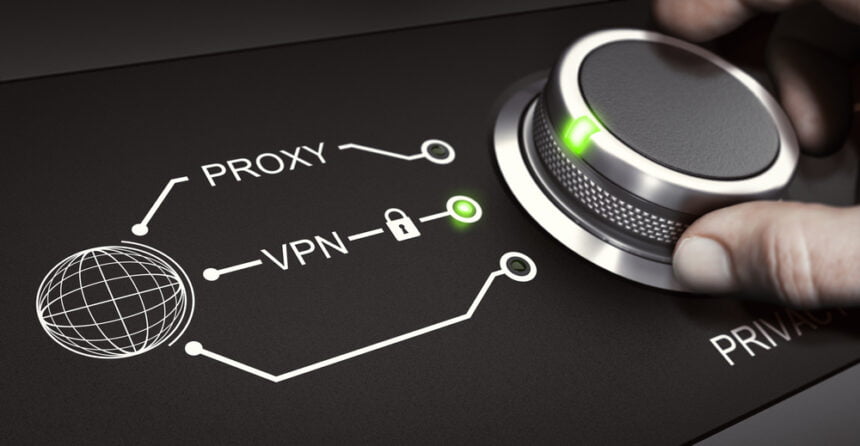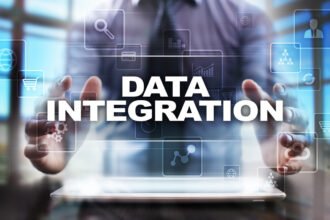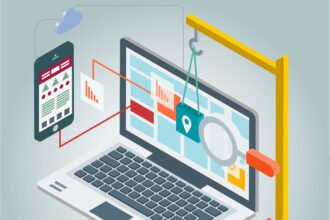UMass Global has a very insightful article on the growing relevance of big data in business. Big data has been discussed by business leaders since the 1990s. The term was first published in 1999 and gained a solid definition in the early 2000s. It refers to datasets too large for normal statistical methods. This includes videos, pictures, maps, words, phrases, and numbers. Examples include customer reviews, social media posts, medical records, and bank records.
Professionals have found ways to use big data to transform businesses. Many business leaders are still struggling to understand the role big data will have in the future of their business models.
One thing that they need to do is collect data their business needs. This means that they have to consider all the different types of data that their business will utilize, which can include utilizing residential proxies.
Using Residential Proxies to Collect Data for Your Business
In the digital age, data gathering has become an essential part of any business strategy. By collecting and analyzing data, businesses can gain insights into customer behavior, market trends, and industry developments. However, the process of data gathering can be complex and challenging, especially when dealing with large volumes of information. That’s where residential proxies come in. In this article, we’ll explore the importance of data gathering for businesses and how residential proxies can help improve the process.
Understanding the Importance of Data Gathering for Businesses
In the digital age, businesses rely heavily on data to make informed decisions and improve their operations. However, gathering data can be a complex and challenging process, especially when dealing with large volumes of information. As such, businesses need to have the right tools and resources to collect, analyze, and interpret data effectively.
One of the critical components of successful data gathering is the use of proxies. Proxies act as intermediaries between a user and the internet, allowing them to browse the web without revealing their identity or location. While there are many types of proxies available, residential proxies have gained popularity in recent years due to their unique features and benefits.
In this article, we’ll explore the importance of data gathering for businesses and how residential proxies can help improve the process.
The Importance of Data Gathering for Businesses
Data gathering is an essential part of any business strategy. By collecting and analyzing data, businesses can gain insights into customer behavior, market trends, and industry developments. This information can help companies make informed decisions and develop strategies that can drive growth and profitability.
Data gathering can take many forms, including web scraping, data mining, and social media monitoring. However, these methods can be challenging to implement without the right tools and resources. For example, web scraping requires businesses to collect data from websites, which can be challenging when dealing with large volumes of information or complex website structures.
Furthermore, many websites have implemented anti-scraping measures to prevent bots from collecting data. As such, businesses need to use specialized tools to bypass these measures and collect data effectively.
The Role of Residential Proxies in Data Gathering
Residential proxies can play a significant role in data gathering for data-driven businesses. Unlike other types of proxies, such as data center proxies or VPNs, residential proxies use IP addresses that belong to real devices and networks. This makes them less likely to be detected as proxies by websites and less likely to be blocked or banned. They can be especially useful for conducting tasks like using AI-driven web scraping tools, which require you to access a website many times and lead to the risk that your requests will be blocked if you keep using the same IP addresses.
Residential proxies work by routing internet traffic through a real device, such as a mobile phone or computer that is connected to the internet through a residential network. This makes it appear as though the user is accessing the internet from a specific location, even if they are physically located elsewhere.
Using residential proxies in data gathering allows businesses to bypass anti-scraping measures and collect data more effectively. For example, businesses can use residential proxies to collect data from websites that block data center proxies or VPNs. They are especially great for web data mining.
Residential proxies also offer several other benefits for businesses, including:
1. Enhanced Data Privacy and Security
Residential proxies provide enhanced data privacy and security by masking the user’s real IP address and location. This helps to protect sensitive data from prying eyes and reduces the risk of data breaches and cyber attacks.
2. Improved Accuracy of Data
Residential proxies can improve the accuracy of data gathered by businesses. By using proxies from different locations, businesses can collect data that reflects the diversity of their target audience. This can help to create more accurate and comprehensive data sets, which can lead to better decision-making.
3. Scalability and Reliability
Residential proxies are highly scalable and reliable. Since they use real devices and networks, businesses can easily scale their data gathering operations without worrying about IP blocks or bans. Additionally, residential proxies offer high uptime rates, which means businesses can rely on them to collect data consistently.
Data-Driven Businesses Should Consider the Benefits of Residential Proxies
In conclusion, data gathering is a critical component of any business strategy. By collecting and analyzing data, businesses can gain insights into customer behavior, market trends, and industry developments. This is a powerful way to harness the power of big data for your business. However, the process of data gathering can be complex and challenging, especially when dealing with large volumes of information.
Residential proxies offer a valuable solution to businesses looking to improve their data gathering efforts.











